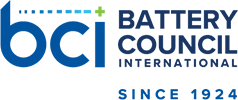Results Confirm Circular Economy Success; Lead Batteries Remain Most Recycled U.S. Consumer Product
WASHINGTON, November 14, 2019 – In conjunction with America Recycles Day (November 15), Battery Council International (BCI) has issued its biennial report on the recycling rate of lead batteries in the U.S. Most notable is the lead battery industry’s continued success in designing for – and creating – a successful end-of-life circular economy for spent lead batteries. The report confirms EPA’s recycling comparison1 showing that the 99% recycling rate of lead batteries makes them the most recycled consumer product in the U.S.
Kevin M. Moran is executive vice president of BCI. He said the report, titled National Recycling Rate Study, reinforces the lead battery industry’s successful circular infrastructure, using data through 2018.
“Our industry’s nationwide lead battery collection and recycling infrastructure continues to produce a near-perfect recycling rate of 99%. The primary components – plastic, acid and lead – become a valuable domestic resource used to create new lead batteries that contain more than 80% recycled material.”
Moran believes the report is particularly timely, given climate change concerns. “This data further reinforces that lead batteries are a smart, sustainable choice to support the growth in renewable energy storage and green transportation, such as start-stop technology, hybrids and electric vehicles.” Lead batteries provide the battery power for more than 275 million U.S. vehicles and more than 70% of the world’s rechargeable power.
The EPA will culminate its weeklong celebration of America Recycles Week by holding its second annual Recycling Summit on November 15. According to Moran, it’s fitting that BCI marks the occasion with a study that confirms the role of lead batteries in the circular economy.
“As a signatory to EPA’s America Recycles Pledge, BCI is honored to participate in ceremonies with EPA Administrator Andrew Wheeler to recognize the contribution from industries like ours to create infrastructure and products to ensure a sustainable future,” said Moran.
The U.S. lead battery industry keeps more than 129 million lead batteries out of landfills annually. Its state-of-the-art closed-loop process is recognized by the World Economic Forum and MIT’s Center for Transportation and Logistics as the world’s most successful example of a circular economy.
About the Study
The study was produced by SmithBucklin of Chicago and commissioned by BCI. The methodology for calculating the recycling rate considers new battery shipments, battery exports, imports of products containing a battery and imports of scrap lead and used batteries.
Learn More at Essential Energy Everyday
Essential Energy Everyday exists to increase awareness of the critical importance of lead batteries in powering our daily lives and future. It encourages continued investment in sustainable lead battery technology to store and provide energy on demand. Its initiative is supported by the two global trade associations that represent the lead battery and lead industries, Battery Council International and the International Lead Association.
About Battery Council International
Battery Council International is the North American trade association representing lead-based battery manufacturing, supply, recycling and distribution companies. For more information on the association, visit batterycouncil.org.
View a video of the recycling process here: http://aboutbatteries.batterycouncil.org/How-do-I-recycle-my-lead-battery


